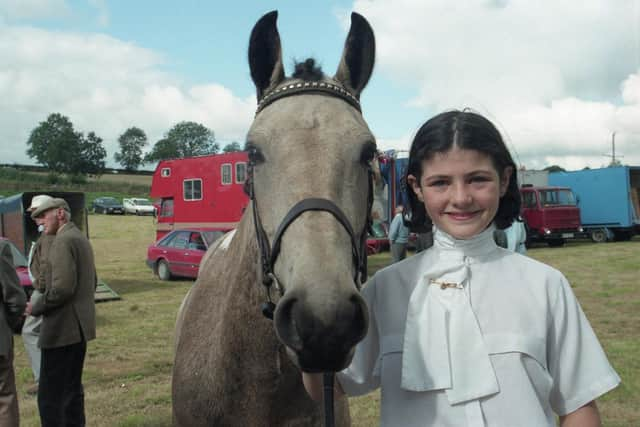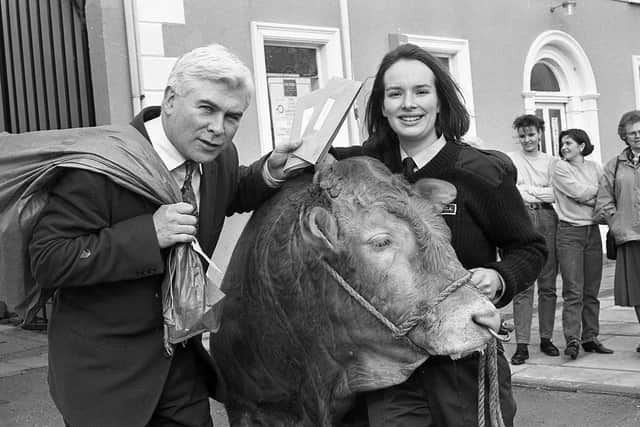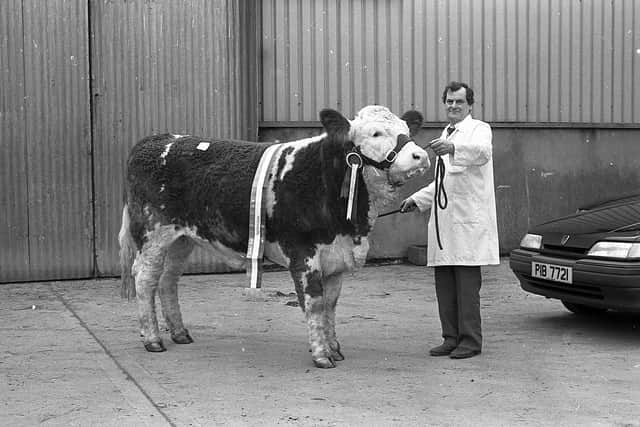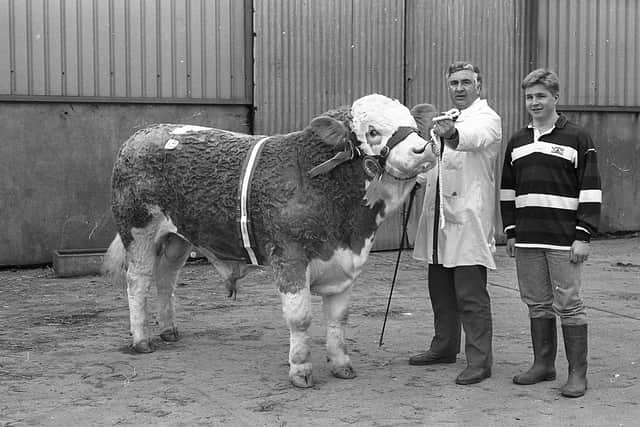‘Farmers are not afraid to compete on equal terms,’ says UFU chief (1983)
and live on Freeview channel 276
Mr Bailie, an extensive beef cattle and sheep producer, who farmed 260 acres at Toomebridge, Co Antrim, was addressing the UFU council after taking over the top UFU job from outgoing president, Mr William Fullerton.
Mr Dee Robinson of Killinchy, Co Down, who was in poultry, beef cattle, sheep and cereals production, took over as deputy president, and the new vice president of the UFU was Mr William Martin of Greyabbey, Co Down, who was an extensive producer of beef cattle, sheep and cereals, reported Farming Life.
Advertisement
Advertisement
Mr Bailie said that Northern Ireland agriculture was “at last being recognised for the vital role it can play in the economy”.


He pointed out that the belated price proposals suggested a below inflation increase “and some sectors very much below” and said that the agricultural industry needed a long-term programme..
He said: “While we do not expect to be completely isolated from market movements, yet we need the structures and commitment which will give confidence for the future.
“The EEC in some areas is at a crossroads - new thinking will have to take place on many aspects of its policy. The Americans are exerting pressures on agricultural matters in international trade.
Advertisement
Advertisement
“But in Northern Ireland we must be able to maintain our intensives and to continue the gradual development of our milk, beef and sheep industries.


“We do not have alternative production such as cereals, and it is therefore essential that circumstances permit the full use of our resources in the grass based sectors.”
Mr Bailie continued: “While we accept that much progress has been make in marketing, we must continue to pursue every avenue through our processors, marketing boards, meat plants, co-operatives, British Food Production Council, Food from Britain and at farm level. A continuing improvement in our marketing performance will be vital to our long-term well-being as an industry.”
At the outset, Mr Bailie said that for some sectors of the industry there had been a considerable improvement.
Advertisement
Advertisement
“We are thankful for this but it must be kept in perspective,” Mr Bailie said. “This improvement has been largely brought about by a 10.5% increase in support prices last year; increase in Northern Ireland special assistance; lower inflation and interest rates; favourable weather conditions.


“Those who have talked about a massive percentage increase in farm incomes did not examine the base line from which that figure came, nor did they point out that real farm income is still one-third below the level of five years ago, nor did they mention the fact that agriculture has increased its productivity over the past ten years at double the rate of manufacturing industry. They have not looked at the contribution that farming makes to our everyday living.
“Farmgate prices for our produce have risen less than food prices in the shops and they have risen less than the Retail Price Index. This has been achieved at some cost to farmers' assets. We owe the banks about £198 million.
“We need more investment, the level at present being the second lowest for ten years.”
Advertisement
Advertisement
Mr Bailie pointed out that the grass based sectors had enjoyed the improvement but but there had been a huge decline in fat cattle numbers through the farms and meat plants. He said that a pressing aim would be to continue and strengthen the recovery in the grass based sectors and he said that he would continue to seek this along with his colleagues in Great Britain.


Commenting on the “disastrous situation” in the intensive sectors, Mr Bailie said: “We know some of the causes - a weakened pound; high input costs and weak market situation. The position throughout Great Britain is bad - Northern Ireland is even worse. A solution must be found for the intensives before it is too late.
“They account for between 20% and 25% of our agricultural output. This sector is one of the major props of the type of farming we have in Northern Ireland. If that prop is removed it will have severe economic percussions for the whole of our agricultural economy.
“I do not think that it makes sense to export cereals at low prices and sell them to our livestock producers at very high prices. I agree with the Secretary of State when he called for a reassessment of this issue, especially relative to areas like Northern Ireland.”
He asked: “Perhaps, at long last, there could be a re-thinking of policy on these matters?”